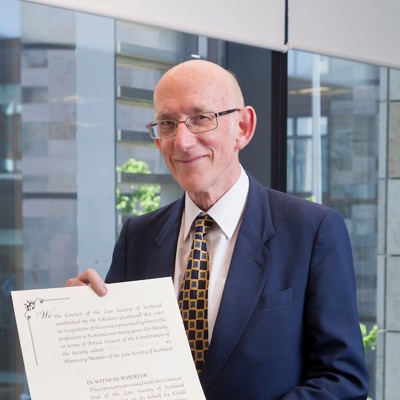Scottish lawyers to lead European project on advance choices
The Law Society of Scotland’s work on advance choices in case of future disablement has inspired a major project to encourage legal reform across Europe.
The Council of the Vienna-based European Law Institute (ELI) has approved a project to draft model laws for advance choices, to facilitate consistent and effective regulation in this important area across Europe.
Adrian Ward – convener of the Law Society of Scotland's Mental Health and Disability Sub-Committee – will lead the project alongside Christiana Fountoulakis, a Professor of Law at Fribourg University in Switzerland and ELI Council member.
Three other members of the Law Society of Scotland's Mental Health and Disability Sub-Committee have also been invited to join the programme, along with one member of the Health and Medical Law Sub-Committee.
Earlier this year the Law Society released a cross-committee report on the need for legal reform around advance choices, and medical decision-making in intensive care situations – the report made a significant contribution to the recently completed Scottish Mental Health Law Review (Scott Review).
Mr Ward said: "Our cross-committee work at the Law Society of Scotland has been pivotal in the European Law Institute’s decision to pursue this important area of legal reform. This shows Scotland’s capacity to provide legal leadership, and I’m pleased to be asked to co-lead the project.
"Advance choices is an important area of legal reform in all jurisdictions, particularly with the ageing population, and with emphasis on the right to autonomy of people of all ages with relevant disabilities. Advance choices enable people to make informed choices and decisions about any aspects of their future lives while they’re able to do so.
"The development of this new project through ELI will also likely be helpful in Scotland, as the Scottish Government looks to implement the recommendations of the Scott Review."

Advance choices and medical decision making
Deficiencies in Scots law around advance choices, and medical decision-making in intensive care situations, put human rights in jeopardy, according to a Law Society of Scotland report.

